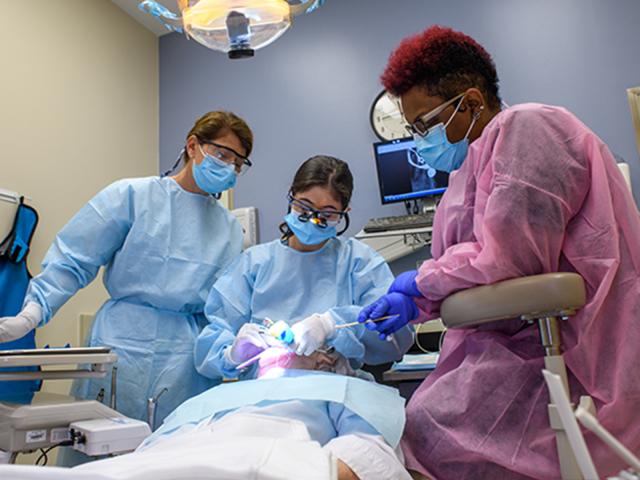
By Kaitlin McKelvy | UAB News
Organized dentistry has not always been the straightforward practice we know today. Many years ago, it was seen as rudimentary and sometimes downright painful. Nowadays, rapid innovations in the field allow for state-of-the-art diagnostics and care that put patients’ comfort at the forefront.
Nate Lawson, DMD, Ph.D., associate professor and director of the Division of Biomaterials at the University of Alabama at Birmingham’s School of Dentistry, provides some insight into the world of modern dentistry and the three things everyone should know about dentistry.
Dentistry has gone digital
Dentists know patients do not favor the “goo” that is used to take impression — but Lawson says neither do they. With improvements in 3D-scanning technology, it is eliminating the need to take impressions with the gooey materials used in the past.
“Digital impressions are more accurate and usually faster, not to mention that patients really seem to prefer them,” Lawson said. “They use light and cameras to take the images, just like your smartphone, so there is no harm to your body when taking these scans.”
3D scanners have many advantages, such as allowing digital planning for more complex treatment, fast communication with labs who make crowns and other dental appliances, and digital storage of the files in case future revisions are needed.
Dentistry has become less invasive
There have been many advances in dentistry over the past 10 to 20 years that allow dentists to better serve patients and prolong the lifetime of their teeth. Some of these include improvements in bonding that allow dentists to remove less of the tooth when fixing cavities or broken teeth. Many teeth can now be saved with bonded fillings or ceramic restorations. For deep cavities, there are treatments that help heal the nerve to avoid root canals in some cases.
“Advancements in materials for a procedure called ‘pulp capping’ have improved success rates for this treatment,” Lawson said. “The extensive use of dental implants has been able to give patients treatment options for missing teeth that are more tooth-preserving than traditional bridges and more functional than traditional dentures and partial dentures.”
Dentistry has become even more preventive
The role of the dentist is to keep patients healthy and out of the dentist chair as much as possible. Regular visits to the dentist and hygienist are designed to catch warning signs to help recommend preventive and minimally invasive treatments before larger problems occur.
“Many small cavities can be reversed with improvements in diet, hygiene and high-strength fluoride products,” Lawson said. “Tooth wear can be a destructive habit that can be addressed with a nightguard.”
Gum disease is a condition that affects many adults and leads to eventual tooth mobility and loss — which can be treated with professional cleanings and home hygiene instructions.
Lawson, who serves in the UAB Dental Group, wants patients to know that regular dental visits are important for overall health.
“Several systemic conditions have been linked to oral health,” he said. “An oral cancer screening is an important part of every dental oral examination.”




